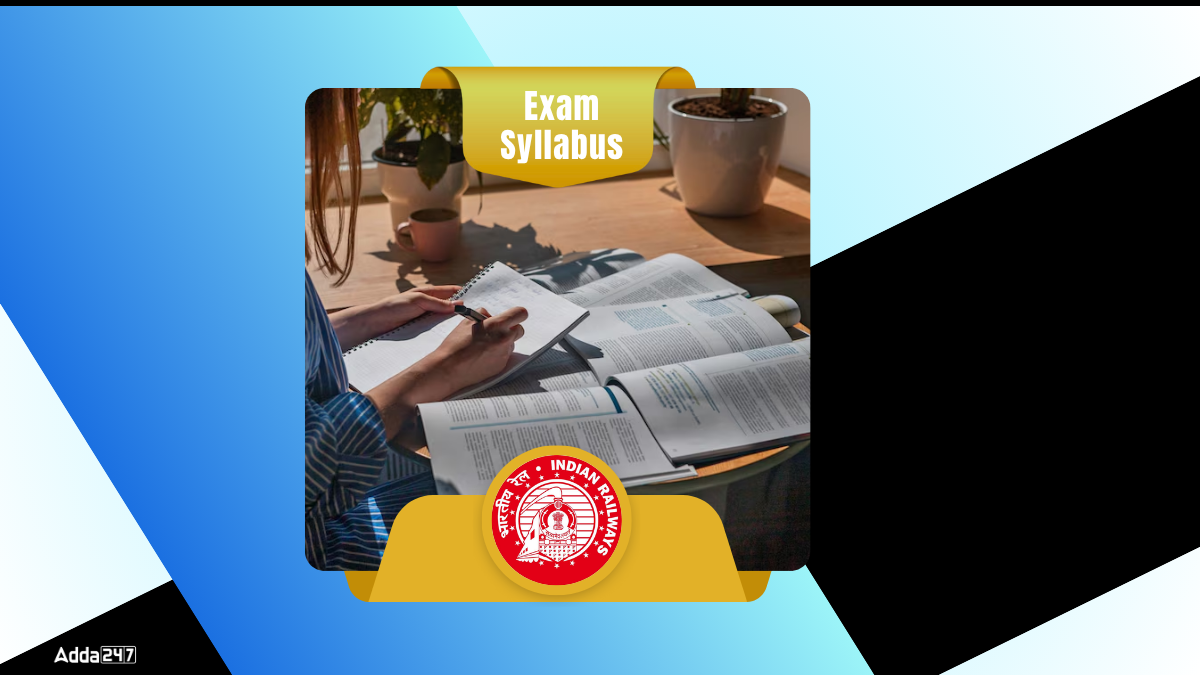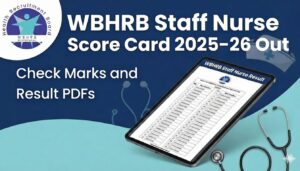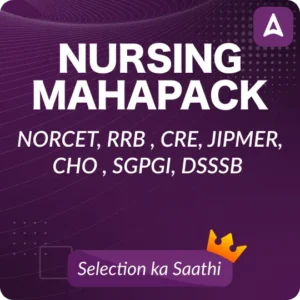The Railway Recruitment Board (RRB) has released the RRB Paramedical recruitment for a total of 434 vacancies for various paramedical posts. And after the wait of 4 months, the exam schedule is finally over, as the board has officially announced that the Computer-Based Test (CBT) will be conducted from 10 March to 12 March 2026. With the exam dates confirmed and approaching fast, aspirants must accelerate their preparation without delay. To maximise this final phase of study, candidates must focus strictly on the updated RRB Paramedical Syllabus 2026 and practise previous year papers to boost their chances of success in this competitive recruitment drive.
RRB Paramedical Syllabus 2026
The RRB Paramedical 2026 Recruitment assesses aspirants in 4 main sections, such as Professional Ability, General Awareness, General Arithmetic, General Intelligence and Reasoning, and General Science. With a detailed understanding of the RRB Paramedical Syllabus, candidates can strategise their study plan and prepare, knowing their weak points that they must focus on and the topics they can put in their revision plan.
RRB Paramedical Syllabus Highlights
Interested aspirants for the Paramedical Recruitment within the Railway Recruitment Board must stay updated on the key details of the RRB Paramedical Syllabus. All the essential information regarding the exam syllabus is mentioned in the given table.
| RRB Paramedical Syllabus 2026: Key Highlights | |
| Exam Name | RRB Paramedical Recruitment |
| Conducted By | Railway Recruitment Board (RRB) |
| Exam Date | 10 March 2026 – 12 March 2026 |
| Selection Process | Computer-Based Test (CBT), Document Verification |
| Subjects | Professional Ability, General Awareness, General Intelligence and Reasoning, and General Science |
| Official Website | www.indianrailways.gov.in |
RRB Paramedical Subject-Wise Syllabus
Aspirants aspiring for this recruitment must go through all the topics covered in each subject of the RRB Paramedical Syllabus to pass the exam with excellent scores. Aspirants must comprehensively prepare the below-mentioned topics included in the syllabus for the RRB Paramedical exam.
RRB Paramedical Syllabus for General Subjects
General Arithmetic, General Intelligence and Reasoning, General Awareness, and General Sciences sections of the RRB Paramedical Syllabus consist of the following topics.
A total of four sections are in the RRB Paramedical Syllabus: Professional Ability, General Awareness, General Arithmetic, General Intelligence and Reasoning, and General Science. The highest weightage of marks is given to the Professional Knowledge section. There will be 100 objective questions in the exam with multiple choice, totaling 100 marks. The exam duration is 90 minutes, and a negative marking of 1/3rd mark is applicable on each wrong answer. As the exam will be held in multiple shifts, normalization will be applied. Aspirants can check the detailed exam pattern here:
| RRB Paramedical Exam Pattern 2026 |
||
|---|---|---|
| Subject | No. of Questions | Marks |
| Professional Ability | 70 | 70 |
| General Awareness | 10 | 10 |
| General Arithmetic, General Intelligence and Reasoning | 10 | 10 |
| General Science | 10 | 10 |
| Total | 100 | 100 |
Paramedical Minimum Qualifying Percentage
Obtaining the minimum pass percentage is crucial for aspirants to qualify for the next stage of the RRB Paramedical selection process, i.e., Document Verification. To get an idea of the minimum qualifying marks for the RRB Paramedical Exam 2026, aspirants can go through this table:
| Minimum Qualifying Percentage For RRB Paramedical Exam |
|
|---|---|
| Category | Minimum Qualifying Marks |
| UR and EWS | 40% |
| OBC (NCL) | 30% |
| SC | 30% |
| ST | 25% |
RRB Paramedical Syllabus 2026 Preparation Tips
To crack the exam successfully, aspirants need to do solid preparation. The following are some tips that will help aspirants solidify their preparation to ace the RRB Paramedical Exam 2026 with excellent scores:
- Review the RRB Paramedical Syllabus 2026 and exam pattern thoroughly.
- Plan a proper study schedule and build an effective preparation strategy
- Focus more on the Professional Ability section as it carries the highest weightage of 70 marks.
- Study from relevant books, sample papers, and solve RRB Paramedical Previous Year Question Papers.
- Create short notes for quick revision and practice regularly.




 WBHRB Staff Nurse Score Card 2025-26 Out...
WBHRB Staff Nurse Score Card 2025-26 Out...
 Rajasthan LDC Syllabus and Exam Pattern ...
Rajasthan LDC Syllabus and Exam Pattern ...
 Punjab Excise Inspector Syllabus 2026, C...
Punjab Excise Inspector Syllabus 2026, C...

 Adda247 Job portal has complete information about all Sarkari Jobs and Naukri Alerts, its latest recruitment notifications, from all state and national level jobs and their updates.
Adda247 Job portal has complete information about all Sarkari Jobs and Naukri Alerts, its latest recruitment notifications, from all state and national level jobs and their updates.




